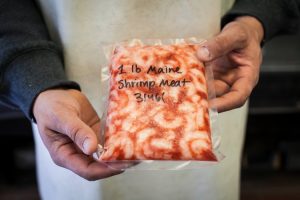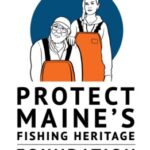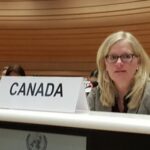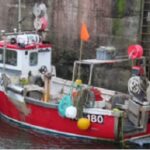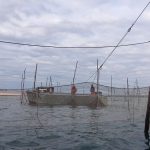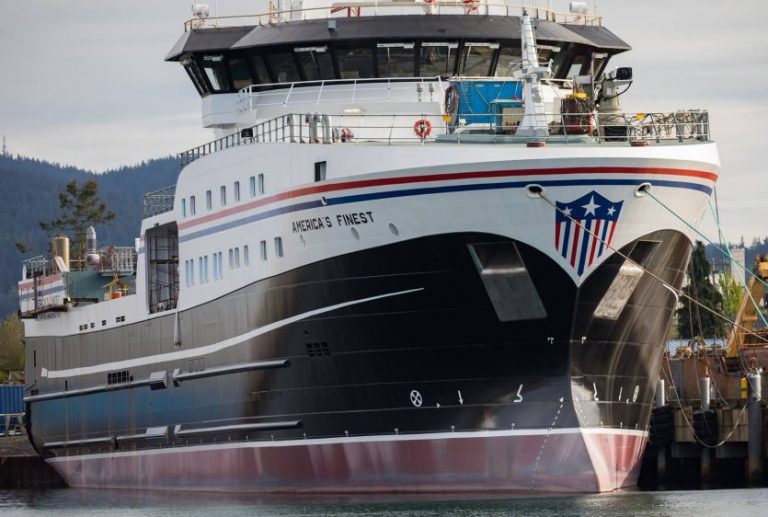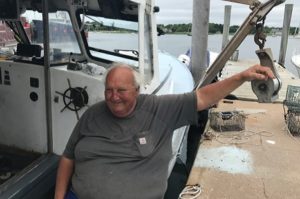Tag Archives: Study
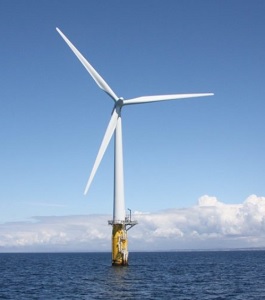
Offshore Wind Will Deliver Few U.S. Jobs; Lack of Oversight Means Most Jobs Will Be Overseas
New developments have raised serious questions regarding the economic and job benefits from offshore wind energy projects in U.S. waters. Unsubstantiated claims of significant economic growth and investment have exaggerated the benefits of offshore wind energy, and diminished the economic and cultural importance of sustainable American wild-caught fisheries. A new study, conducted by Georgetown Economic Services (GES), finds that “[t]he claim that the huge investments in offshore wind would provide significant job and economic benefits in the U.S. has been grossly inflated.” The study also reaches an important conclusion: many of the jobs and benefits would actually go to the foreign-owned companies currently dominating the wind energy landscape, instead of creating local opportunities. >click to read< 15:45
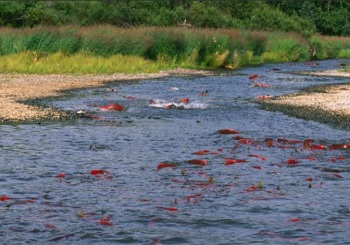
Alaska’s wild salmon are getting smaller
For years, people in Alaska have been noticing that wild salmon were getting smaller, but the reasons have been unclear. In the new study, published August 19 in Nature Communications, researchers compiled and analyzed data collected over six decades (1957 to 2018) from 12.5 million fish by the Alaska Department of Fish and Game. This unprecedented dataset enabled them to see patterns of body size changes for four species of salmon, Chinook, chum, coho, and sockeye, across all regions of Alaska. The results showed that the decreases in body size are primarily due to salmon returning to their spawning grounds at younger ages than they have in the past. >click to read< 11:24
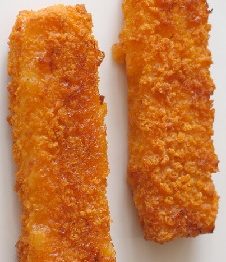
Fish sticks generate greenhouse gas emissions
Researchers have found that transforming ‘Alaskan pollock’ into fish sticks, imitation crab and fish fillets generates nearly twice the greenhouse gas emissions produced by fishing itself. Post-catch processing generates nearly twice the emissions produced by fishing itself, which is typically where the analysis of the climate impact of seafood ends, according to the findings, published in the journal Elementa: Science of the Anthropocene. >click to read< 15:29
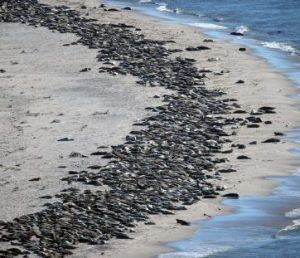
“Human Dimension of Rebounding Population of Seals and White Sharks on Cape Cod.” Study targets public’s views about seals
“We want to bring different perspectives together to see what people value about Cape Cod, see what they understand about the marine ecosystem and the interactions within it,” said George Maynard, research coordinator at the Cape Cod Commercial Fishermen’s Alliance, one of the collaborating organizations. “Seals are one piece in an increasingly complicated environment.” Jennifer Jackman, a professor of political science at Salem State University, is leading the study, “Human Dimension of Rebounding Population of Seals and White Sharks on Cape Cod.” >click to read< 13:12

Drink Up! 25 cups of coffee a day are as safe for your heart as 1 cup, new study says
Coffee lovers now have scientific evidence that it’s safe for your heart to have as much as 25 cups a day, according to a new study. Coffee fans have been getting mixed messages about their favorite drink for years, including previous studies that suggest coffee is bad for your heart.,,, But a new study from Queen Mary University of London and the British Heart Association says the opposite. The study found that drinking five or more cups a day was no worse for the arteries than drinking less than a cup; the study also found that even those who drink up to 25 cups a day >click to read<11:53

An Agenda Driven Study: Marine charities net more than iconic fishery
Massachusetts boasts one of the most iconic fisheries in the U.S., but new research suggests that protecting marine coastlines has surpassed commercial fishing as an economic driver. The study is the first to calculate the economic value of coastal preservation in Massachusetts. The research finds these efforts contributed $179 million to the state’s economy in 2014, more than finfish landings ($105 million) and whale-watching ($111 million). “Marine conservation has become a major economic force in Massachusetts,,, (It is an industry of destruction.) >click to read< 12:27
Hawaiʻi nearshore fishery provides big benefits
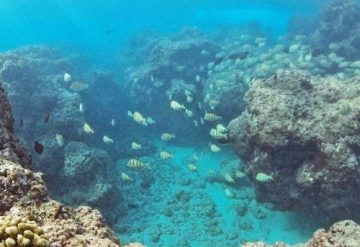 Small-scale fisheries support the well-being of millions of people around the world—even in a well-developed economy such as Hawaiʻi’s, they provide important economic as well as social benefits. The total annual monetary value of the fishery is approximately $10.3 to $16.4 million. The non-commercial fishery in particular provides huge benefits to the community—non-commercial catch is around three times reported commercial catch and is worth $4.2 to $10 million more annually. However, the full benefits to Hawaiʻi also include the potential to provide over 7 million meals a year as well as less tangible but just as important benefits such as the perpetuation of culture, community cohesion and sharing knowledge with the next generation. click here to read the story 20:22
Small-scale fisheries support the well-being of millions of people around the world—even in a well-developed economy such as Hawaiʻi’s, they provide important economic as well as social benefits. The total annual monetary value of the fishery is approximately $10.3 to $16.4 million. The non-commercial fishery in particular provides huge benefits to the community—non-commercial catch is around three times reported commercial catch and is worth $4.2 to $10 million more annually. However, the full benefits to Hawaiʻi also include the potential to provide over 7 million meals a year as well as less tangible but just as important benefits such as the perpetuation of culture, community cohesion and sharing knowledge with the next generation. click here to read the story 20:22
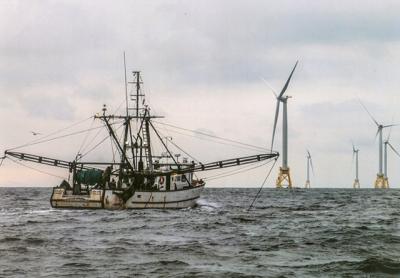
Offshore Wind Faces Stiff Test From Hurricanes
As new offshore wind farms are built off the Northeast coast, a new report suggests that the current models of wind turbines may not withstand the most powerful of hurricanes. The study, by the University of Colorado Boulder, the National Center for Atmospheric Research and the U.S. Department of Energy, is intended to help the budding offshore wind industry as it expands into hurricane-prone regions, such as the East Coast. “We wanted to understand the worst-case scenario for offshore wind turbines, and for hurricanes, that’s a Category 5,” said Rochelle Worsnop, lead author and a graduate researcher in the University of Colorado’s Department of Atmospheric and Oceanic Sciences (ATOC). click here to read the story 10:58
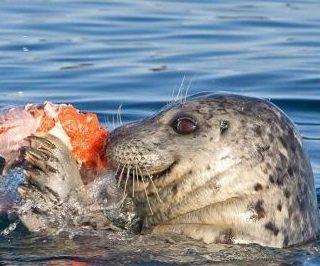
Study says seals eat more Chinook than Southern resident killer whales
Seals are eating more Chinook than Southern resident killer whales. That’s bad for both endangered species’ recoveries. “The seals might not be the enemy as much as the problem is that we’ve lost forage fish available to them,” said Joe Gaydos, science director of the SeaDoc Society on Orcas Island. According to a recent Canadian study, the amount of Chinook salmon eaten by seals in the Salish Sea has increased from 68 metric tons in 1970 to 625 metric tons in 2015. That’s double the amount Southern resident killer whales ate in 2015 in the same location, and six times more than commercial and recreational fisheries according to the study. Continue reading the story here 12:20
Study: Seismic Testing Disrupts Fish Behavior
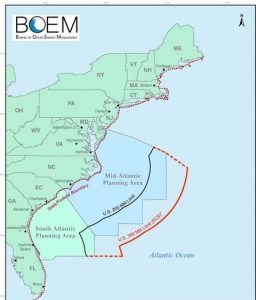 Almost anyone who’s thrown a hook in the water to catch a fish in a quiet atmosphere probably knows intuitively that loud noises spook them: you don’t scream at fish to bite, after all, you wait patiently. But intuition isn’t science, and seismic airguns don’t make just any loud noise, so when University of North Carolina Institute of Marine Sciences doctoral student Avery Paxton and some colleagues got the opportunity to do some real science on an issue that’s germane to the hot topic of oil and gas exploration by seismic surveys, they jumped at the chance. What they found, back in September 2014 when they did a study during a U.S. Geological Survey seismic mapping effort in the Atlantic Ocean off Beaufort Inlet, not only confirmed intuition, but surprised them in its degree: 78 percent of the fish on a reef near the seismic survey “went missing,” compared to counts at the same time the three previous days during the evening hours, the peak time for fish, such as snapper, grouper and angelfish, to gather there. Continue reading the article here 10:27
Almost anyone who’s thrown a hook in the water to catch a fish in a quiet atmosphere probably knows intuitively that loud noises spook them: you don’t scream at fish to bite, after all, you wait patiently. But intuition isn’t science, and seismic airguns don’t make just any loud noise, so when University of North Carolina Institute of Marine Sciences doctoral student Avery Paxton and some colleagues got the opportunity to do some real science on an issue that’s germane to the hot topic of oil and gas exploration by seismic surveys, they jumped at the chance. What they found, back in September 2014 when they did a study during a U.S. Geological Survey seismic mapping effort in the Atlantic Ocean off Beaufort Inlet, not only confirmed intuition, but surprised them in its degree: 78 percent of the fish on a reef near the seismic survey “went missing,” compared to counts at the same time the three previous days during the evening hours, the peak time for fish, such as snapper, grouper and angelfish, to gather there. Continue reading the article here 10:27
New Effort Underway To Study Black Sea Bass In Southern New England
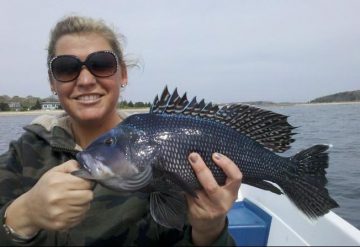 The Commercial Fisheries Research Foundation is kicking off a new project to collect data on black sea bass, a species that has moved north in search of cooler water. Catch limits for black sea bass in New England are a small compared to the Mid-Atlantic states, where the fish are typically found, according to Anna Malek Mercer, the foundation’s executive director. That means New England fishermen are throwing back very large quantities of black sea bass, she said. And it’s a highly valuable species. “So this will fetch at the dock between $4 and $7 a pound,” said Malek Mercer. “It’s super important in that way. Really could begin to fill some of this economic void caused by the downturns in things like ground fish and southern New England lobsters. ” The project will enlist Rhode Island fishermen to collect data on black sea bass. Read the story here 16:29
The Commercial Fisheries Research Foundation is kicking off a new project to collect data on black sea bass, a species that has moved north in search of cooler water. Catch limits for black sea bass in New England are a small compared to the Mid-Atlantic states, where the fish are typically found, according to Anna Malek Mercer, the foundation’s executive director. That means New England fishermen are throwing back very large quantities of black sea bass, she said. And it’s a highly valuable species. “So this will fetch at the dock between $4 and $7 a pound,” said Malek Mercer. “It’s super important in that way. Really could begin to fill some of this economic void caused by the downturns in things like ground fish and southern New England lobsters. ” The project will enlist Rhode Island fishermen to collect data on black sea bass. Read the story here 16:29
Global population’s of squid, octopuses and cuttlefish are booming
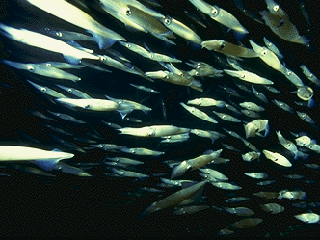 The world’s squid, octopuses and cuttlefish have been going through a massive, 60-year population boom, a new study has found. Published yesterday in Current Biology, the study shows a continued rise in population numbers of cephalopods since the 1950s. It also reveals the boom has happened in 35 species of cephalopods – covering six families – around the globe. Earlier research has found cephalopods, which are highly adaptable to changing environments, may be benefiting from a combination of climatic changes, including global temperature rises. University of Adelaide researcher Dr Zoe Doubleday led the study and found that despite anecdotal reports indicating a “boom and bust” cycle in cephalopod populations, since 1953 there had been a sustained increase. Link to the study here 11:51
The world’s squid, octopuses and cuttlefish have been going through a massive, 60-year population boom, a new study has found. Published yesterday in Current Biology, the study shows a continued rise in population numbers of cephalopods since the 1950s. It also reveals the boom has happened in 35 species of cephalopods – covering six families – around the globe. Earlier research has found cephalopods, which are highly adaptable to changing environments, may be benefiting from a combination of climatic changes, including global temperature rises. University of Adelaide researcher Dr Zoe Doubleday led the study and found that despite anecdotal reports indicating a “boom and bust” cycle in cephalopod populations, since 1953 there had been a sustained increase. Link to the study here 11:51
Research finds trawling not as devastating as often portrayed
 An ongoing two-year independent study on trawling and its effect on benthic sea life — species that live on sea floors where trawling occurs – has found that the practice may not be as devastating as it is portrayed by some NGOs. The major data collection and analysis for the project has been completed, including assessments of mobile bottom contact gear in Europe, Australia, New Zealand, Argentina, South Africa and most of the US, making it six times more extensive than and previous compilations. Read the article here 18:36
An ongoing two-year independent study on trawling and its effect on benthic sea life — species that live on sea floors where trawling occurs – has found that the practice may not be as devastating as it is portrayed by some NGOs. The major data collection and analysis for the project has been completed, including assessments of mobile bottom contact gear in Europe, Australia, New Zealand, Argentina, South Africa and most of the US, making it six times more extensive than and previous compilations. Read the article here 18:36
VIMs Study shows Blue crabs more tolerant of low oxygen than previously thought
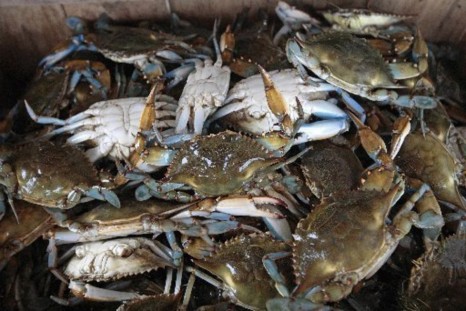 Results of a new study led by researchers at William & Mary’s Virginia Institute of Marine Science show that adult blue crabs are much more tolerant of low-oxygen, “hypoxic” conditions than previously thought. Lead author Rich Brill, a fishery biologist with NOAA’s National Marine Fisheries Service and adjunct faculty at VIMS, says “The notion that blue crabs are relatively intolerant of oxygen-poor waters was counterintuitive, because this species often occupies estuarine environments that can become hypoxic even in the absence of human activities.” Read the rest here 12:13
Results of a new study led by researchers at William & Mary’s Virginia Institute of Marine Science show that adult blue crabs are much more tolerant of low-oxygen, “hypoxic” conditions than previously thought. Lead author Rich Brill, a fishery biologist with NOAA’s National Marine Fisheries Service and adjunct faculty at VIMS, says “The notion that blue crabs are relatively intolerant of oxygen-poor waters was counterintuitive, because this species often occupies estuarine environments that can become hypoxic even in the absence of human activities.” Read the rest here 12:13
Canada sidesteps protection of endangered fish, study finds
 Endangered and threatened marine fish species in Canada are routinely refused protection by the federal government, contrary to scientists’ recommendations, a new study has found. In fact, the more endangered the fish are, the less likely they are to get protection under Canada’s endangered species legislation, researchers at the University of Victoria and the Ecology Action Centre in Halifax report. “It’s a bit of a perverse outcome,” Julia Baum, a University of Victoria biologist who co-authored the report, said during an interview with CBC Radio’s Quirks & Quarks that airs Saturday. Read the rest here 21:51
Endangered and threatened marine fish species in Canada are routinely refused protection by the federal government, contrary to scientists’ recommendations, a new study has found. In fact, the more endangered the fish are, the less likely they are to get protection under Canada’s endangered species legislation, researchers at the University of Victoria and the Ecology Action Centre in Halifax report. “It’s a bit of a perverse outcome,” Julia Baum, a University of Victoria biologist who co-authored the report, said during an interview with CBC Radio’s Quirks & Quarks that airs Saturday. Read the rest here 21:51
Study to focus on fishing port of Belford, North Middletown
 “We’re going to explore options, meet with people in the community, the various property owners and fishermen, and try to develop a vision for the future.” While the area has a rich maritime history connected to the commercial fishing industry, many of the third- and fourth-generation fishermen have been struggling in recent years to compete with the larger port areas in New York or Cape May. “Whatever we do here, we don’t want to lose the fishing industry — we want to preserve it,” Mercantante said. Read the rest here 08:07:42
“We’re going to explore options, meet with people in the community, the various property owners and fishermen, and try to develop a vision for the future.” While the area has a rich maritime history connected to the commercial fishing industry, many of the third- and fourth-generation fishermen have been struggling in recent years to compete with the larger port areas in New York or Cape May. “Whatever we do here, we don’t want to lose the fishing industry — we want to preserve it,” Mercantante said. Read the rest here 08:07:42
Study says shrimp not affected by BP oil spill
 The size and abundance of Louisiana shrimp have been unchanged since the 2010 BP oil spill, according to a new study. The size of local shrimp actually increased following the spill, according to the study by Joris van der Ham and Kim de Mutsert, researchers at .,, Taking issue with the study’s findings is Kevin Carliss McCarthy, a shrimper out of Chauvin. Shrimping “ain’t a whole lot like it was before,“ he said. Read the rest here 07:30
The size and abundance of Louisiana shrimp have been unchanged since the 2010 BP oil spill, according to a new study. The size of local shrimp actually increased following the spill, according to the study by Joris van der Ham and Kim de Mutsert, researchers at .,, Taking issue with the study’s findings is Kevin Carliss McCarthy, a shrimper out of Chauvin. Shrimping “ain’t a whole lot like it was before,“ he said. Read the rest here 07:30
Study: Exposure to crude oil from the Deepwater Horizon disaster causes swimming deficiencies in juvenile mahi mahi
 The four million barrels of crude oil that spewed into the Gulf of Mexico from BP’s failed oil drilling operation potentially exposed millions of fish and other ocean organisms to highly toxic compounds. Read more here 11:30
The four million barrels of crude oil that spewed into the Gulf of Mexico from BP’s failed oil drilling operation potentially exposed millions of fish and other ocean organisms to highly toxic compounds. Read more here 11:30






 In 1980, the city of Dillingham boasted more than 150 fishing permit holders in the community. Today, that number has dropped to less than 80, and while the number of fishermen in rural southwest Alaska has declined, the age of those who continue to fish has risen by almost a decade. A collaborative research project hopes to understand this trend, which has been dubbed The project, called “Alaska’s Next Generation of Fishermen,” hopes to find practical solutions that can rejuvenate an aging fishing industry.
In 1980, the city of Dillingham boasted more than 150 fishing permit holders in the community. Today, that number has dropped to less than 80, and while the number of fishermen in rural southwest Alaska has declined, the age of those who continue to fish has risen by almost a decade. A collaborative research project hopes to understand this trend, which has been dubbed The project, called “Alaska’s Next Generation of Fishermen,” hopes to find practical solutions that can rejuvenate an aging fishing industry. 


























